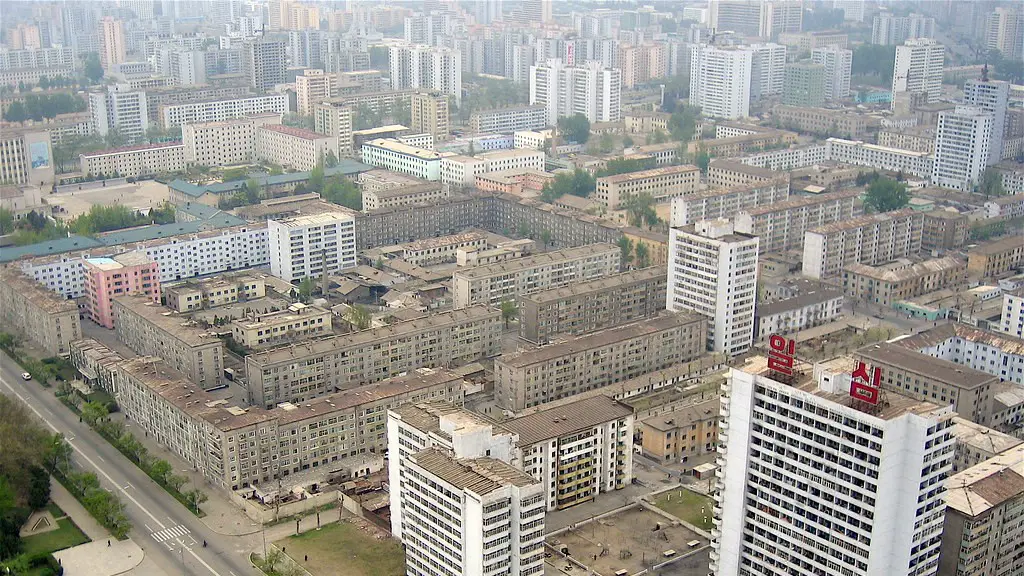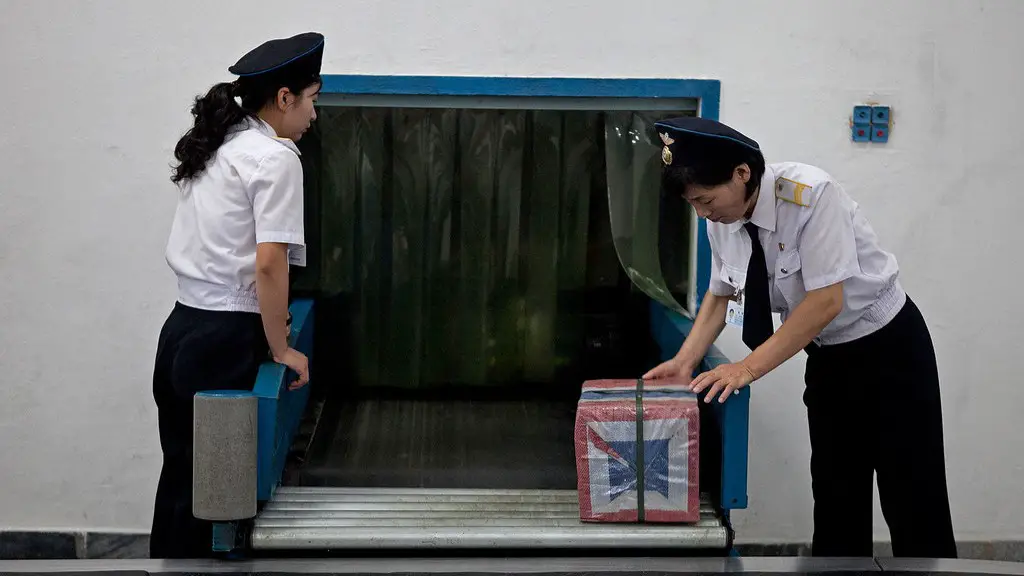Ever since the declaration by North Korea of its nuclear weapons program in 2005, the world has been trying to understand why the Hermit Kingdom chose this path. The Democratic People’s Republic of Korea (DPRK) has a long history of keeping itself isolated from the rest of the world and is a highly centralized state. With an autocratic style of leadership and a population heavily inculcated in mandatory loyalty to the Kim dynasty, the current leader Kim Jong-un is seen as its liberator. This combination of heightened isolationism, nuclear ambitions and leadership dynamics has made the North Korea question all the more difficult to understand.
To begin with, North Korea is seeking assurances of its security after years of feeling threatened by the United States and its allies in the region. The Korean War period, especially, is remembered in the country’s history as a time of harsh genocide and bombardment by the US-led forces. The Kim dynasty has used this narrative for its advantage to mobilize the country against any external aggressor. By incorporating the narrative of external threats into its dynamics, North Korea remains steadfast in its belief that nuclear weapons are the only way to secure its safety and national identity.
Furthermore, North Korea has consistently remained reluctant to open its doors to foreign investments and collaborations despite their importance to its economic development. North Korean government policies such as restrictions on international travels and movement, tightly controlled media and communication infrastructure, and scarce capital keep the country isolated and renders it vulnerable to risk. In order to boost its shaky economy and become more secure, the country’s leadership has decided to pursue a nuclear weapons program as a source of deterrence against any external aggression or interference.
Many experts also suggest that North Korea has adopted the nuclear path after closely observing the way the US has used nuclear weapons as a means of containing and intimidating other regimes. The US government’s use of the atomic bomb during the Second World War and numerous simulations of nuclear strikes in various parts of the world, such as Iraq and Iran, have prompted the North Korean leadership to become more committed in its nuclear ambitions. Pyongyang believes that nuclear weapons are the only way to secure its safety and national identity.
Finally, North Korea is also banking on its nuclear weapons as a means of providing stability in the fragile and chaotic Korean peninsula. By becoming a nuclear power, North Korea is looking to maintain control of the region and also play a more important role in regional and global politics. North Korea can then use the security that nuclear weapons provide in the form of an international political and strategic bargaining chip.
Economic Considerations
The North Korean government has emphasized economic sovereignty as a means of securing national identity, and the country has sought to increase access to resources such as energy, minerals, and technology through the nuclear program. Additionally, North Korea’s nuclear weapons provide the regime with a measure of protection from external economic, political and security threats. By developing its own nuclear capacity, the Kim dynasty is seeking to ensure that the country can hold onto its economic interests without interference from external powers.
North Korea also desires to further develop its economy, but this goal is hindered by the country’s heavy restrictions on foreign investment and inter-state collaboration. Nuclear weapons, on the other hand, may offer the country a more dependable option, as the international community often perceives them as a winning card for regime stability. This notion gives the Kim regime the assurance that, even if the rest of the world is uninterested in investing in the North Korean market, the country can still find economic safety and stability through its nuclear program.
Some experts also suggest that economic considerations may be an additional factor driving marketing decision-making in North Korea. The country’s leadership has previously managed to balance the country’s economic growth with its security ambitions, to ensure that the country does not overstep its limits or provoke an unwanted response from the international community. Nuclear weapons can also be a potential source of income for North Korea, with Kim Jong-un receiving payments in exchange for the threat posed by nuclear weapons and the proliferation of nuclear materials.
International Reactions
The North Korean government’s nuclear intentions have sparked international outcry, with numerous countries expressing their condemnation of Pyongyang’s actions. The UN Security Council has passed an array of resolutions marking the grave concern that exists over the country’s nuclear ambitions, though so far these have been largely ineffective. The US government, meanwhile, has implemented a number of economic sanctions aimed at deterring North Korea from developing further weapons capabilities.
The US has also called on its regional allies such as South Korea and Japan to join the rhetoric against North Korea. Through the regular military exercises that it conducts around the Korean peninsula, the US is sending a message to the Kim regime that it will not tolerate a nuclear North Korea. Additionally, the US has employed diplomatic and economic pressures, such as travel bans, asset freezes, and trade restrictions, to pressure Pyongyang into scaling back its weapons program.
Other nations in the region, such as China, have adopted a slightly different approach to the North Korean nuclear issue. Instead of taking an aggressive stance, China has sought to maintain a more on-and-off diplomatic relationship with North Korea while still maintaining some degree of sanctions against the Kim regime. China has also been seen to square up against the US’ more hardline position, often refusing to back America’s increasingly punishing sanctions.
Proposals for Detente
Given the increasing tensions between the US and North Korea, many experts have proposed various diplomatic methods to reduce the threat of nuclear war. One of the most discussed methods is the so-called ‘dual-track’ policy, where the US would obligate North Korea to cease its nuclear weapons program while engaging in an incremental process of confidence building with Pyongyang. This proposal suggests a gradual process in which both sides would make compromises and concessions, with the aim of creating a less hostile environment on the Korean peninsula.
One important proposal involves the establishment of a peace zone with the Korean peninsula as its epicenter, similar to the one that exists between the US and Russia. This could be done by having North Korea and the US hold joint military maneuvers and other symbolic activities, while simultaneously eliminating existing weapons arsenals. This could potentially be buttressed by economic cooperation in the region, where North Korea and its neighbors work together to build a more prosperous and secure region.
China has also engaged in diplomacy following the recent denuclearization talks between the US and North Korea. The country has proposed a “dual-freeze” proposal in which Pyongyang would suspend its nuclear tests in exchange for the US and South Korea ceasing their military exercises in the region. This is seen as a promising sign that China is open to negotiations and is willing to take a leadership role in the resolution of the Korean nuclear issue.
Regional and Global Ripples
The North Korean nuclear issue has had far-reaching regional and global implications. In the short-term, North Korea has caused immense strain between the US, China, Japan and South Korea. While the US views North Korea’s nuclear ambitions as a direct threat to its national security, the other countries have remained on the sidelines and have pushed for a more calculated and diplomatic approach. This could potentially lead to further schisms between the US and the rest of the world, particularly amongst America’s close allies, such as South Korea and Japan.
Additionally, North Korea’s weapons capabilities have spurred an international arms race in the region. Japan and South Korea have both increased their military spending in response to the growing tension in the region, prompting further instability. China, on the other hand, has recently increased its economic and military influence in the region, which could cause further upheaval in East Asia. Through its unending propaganda against the US and its allies, Pyongyang is hoping to drive away the international community and promote a more unified Korean peninsula.
Finally, the North Korean nuclear issue has sparked an international debate on the efficacy of nuclear weapons. With North Korea now in possession of nuclear weapons, many experts have raised questions about the value of such weapons and have called for an international discussion on the limitations of nuclear weapons in national defense strategies.




